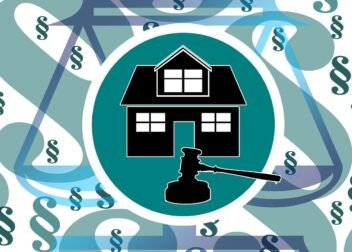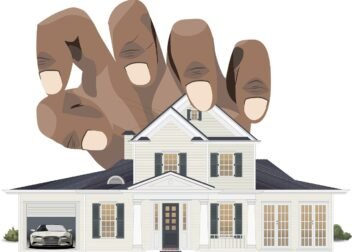Understanding the Key Differences Between Liens and Mortgages
If you’re a homeowner or thinking about buying property, you’ve probably heard the terms lien and mortgage used interchangeably. But are they the same thing? Not quite. While both relate to property ownership and financial obligations, they serve different legal and financial purposes. Knowing the distinction can help you make smarter financial decisions and avoid unexpected complications.
In this guide, we’ll break down what liens and mortgages are, how they work, and why understanding them is crucial for homeowners and buyers.
1. What Is a Lien?
A lien is a legal claim against a property, usually due to unpaid debts. It acts as security for the debt, meaning the lienholder can take action to recover the owed amount if the debt isn’t settled.
Types of Liens
There are several types of liens, including:
- Mortgage Lien – This is placed by a lender when a borrower takes out a home loan (more on this below).
- Tax Lien – The government places this lien when property taxes go unpaid.
- Mechanic’s Lien – Contractors or suppliers may file this if they aren’t paid for work done on a property.
- Judgment Lien – This results from a court ruling when a person owes money due to a lawsuit.
In simple terms, a lien gives a creditor the legal right to claim ownership of a property if the debt isn’t paid.
2. What Is a Mortgage?
A mortgage is a type of loan used to purchase property. When a lender provides financing for a home purchase, they place a mortgage lien on the property until the loan is fully repaid.
How a Mortgage Works
- A buyer borrows money from a lender to purchase a home.
- The lender places a lien on the property as collateral.
- The homeowner makes monthly payments toward the loan, covering principal and interest.
- Once the loan is paid off, the lien is removed, and the homeowner has clear ownership.
Unlike other liens, a mortgage is voluntary, meaning the homeowner agrees to it when signing the loan agreement.
3. Key Differences Between a Lien and a Mortgage
| Feature | Lien | Mortgage |
|---|---|---|
| Definition | A legal claim against a property due to unpaid debt | A loan used to purchase property with the property as collateral |
| Voluntary or Involuntary? | Can be either (e.g., tax liens are involuntary, mortgage liens are voluntary) | Always voluntary |
| Who Holds It? | Creditors, government agencies, contractors, etc. | Banks or mortgage lenders |
| Purpose | Ensures a debt gets paid | Provides financing for property purchases |
| Removal Process | Debt must be paid or legally disputed | Loan must be fully repaid |
4. How Liens and Mortgages Affect Homeowners
Understanding liens and mortgages is essential for homeowners. Here’s why:
A. Selling a Home with a Lien
If a lien exists on a property, it can complicate or delay a sale. Buyers often avoid properties with unresolved liens, as they don’t want to inherit someone else’s debt.
B. Mortgage Payments and Foreclosure
If a homeowner fails to make mortgage payments, the lender can foreclose, repossessing the home and selling it to recover the loan amount.
C. Removing a Lien
To remove a lien, the debt must be paid in full. In some cases, a lien release can be negotiated, but it depends on the creditor and the situation.
5. Protecting Yourself from Lien and Mortgage Issues
A. Do a Title Search Before Buying
A title search uncovers any existing liens on a property before purchase. This helps buyers avoid legal headaches down the road.
B. Stay Current on Payments
Whether it’s a mortgage, property taxes, or contractor fees, keeping up with payments prevents liens from being placed on your home.
C. Work with Professionals
A real estate attorney or title company can help resolve lien issues before they become major problems.
Conclusion: Know Your Property Rights
While a mortgage is a specific type of lien, not all liens are mortgages. Understanding the difference can help you navigate property ownership, avoid financial pitfalls, and protect your investment. Whether you’re buying, selling, or managing a home, staying informed about liens and mortgages ensures smoother transactions and financial security.
Thinking about buying a home? Make sure to check for any outstanding liens first. A little research now can save you a lot of trouble later!
FAQs
1. Can a house have multiple liens?
Yes. A home can have multiple liens from different creditors, including mortgage lenders, tax authorities, and contractors.
2. Does a mortgage count as a lien?
Yes, a mortgage is a voluntary lien placed by a lender until the loan is fully repaid.
3. How can I remove a lien from my property?
Liens are removed once the associated debt is paid. You may need to file paperwork with the relevant authority to officially release the lien.
4. What happens if I buy a home with a lien on it?
If you purchase a home with an existing lien, you could become responsible for paying off the debt. Always conduct a title search before buying.
5. Are all liens bad?
Not necessarily. Some liens, like mortgages, are standard financial tools, while others (e.g., tax liens) signal unpaid debts that need attention.
Get the Compensation You Deserve After Your Accident
If you’ve been injured in a car crash that wasn’t your fault, don’t settle for silence or confusion. Lawayer.com connects you with› experienced attorneys who can fight for your rights and help you recover what you’re owed. Time matters—take the first step now



